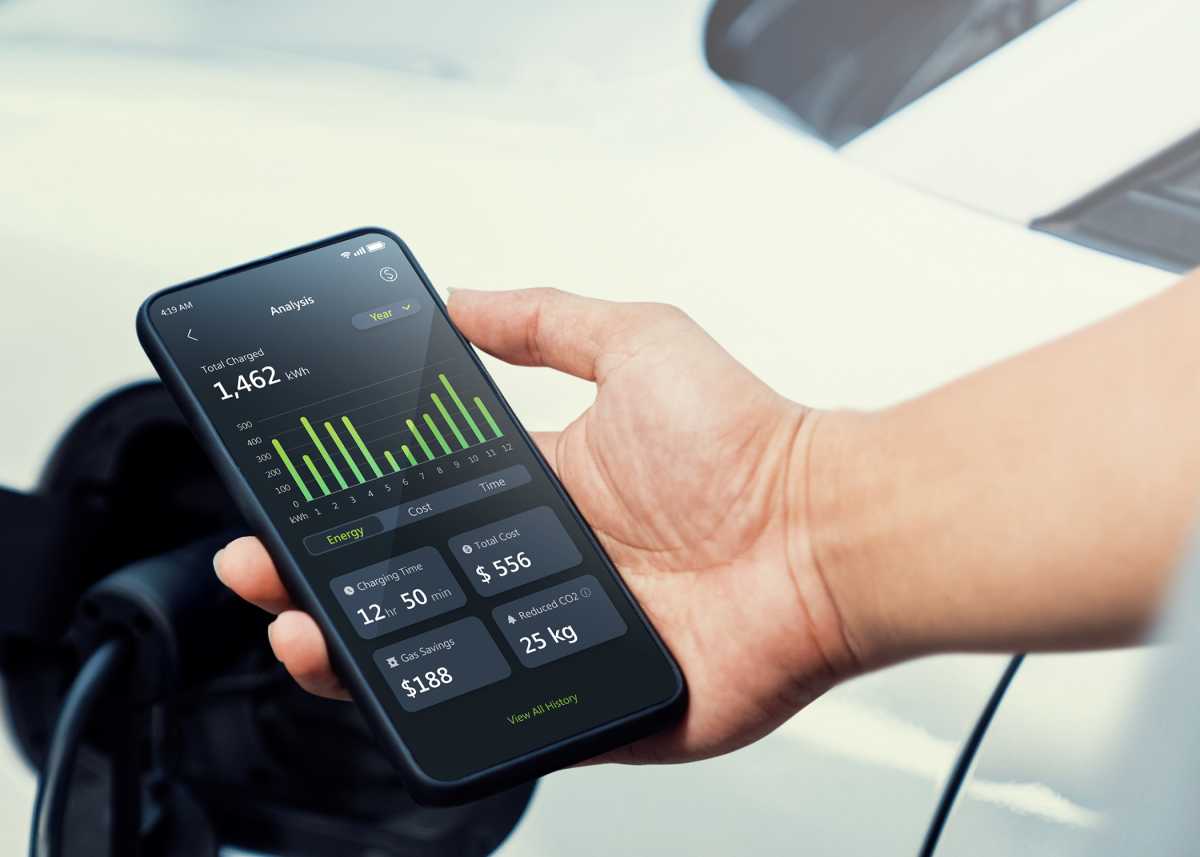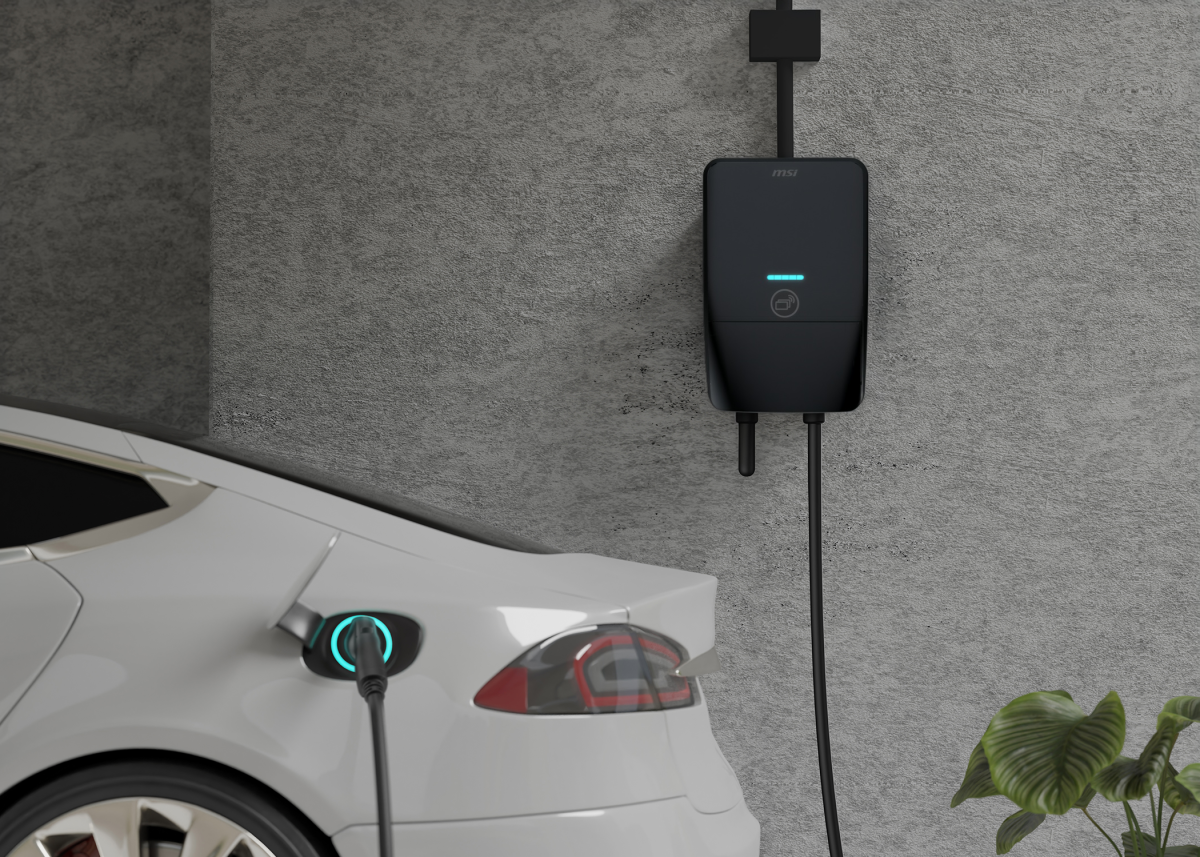- Регистрация
- 17 Февраль 2018
- Сообщения
- 38 930
- Лучшие ответы
- 0
- Реакции
- 0
- Баллы
- 2 093
Offline
MSI's chargers deliver up to 14.4kW, adding between 43 and 59 miles of battery power per hour.

Image: MSI
MSI is more than just PCs. The company is branching out into the world of electric-vehicle (EV) chargers, launching the Level 2 “EV Life Plus” home charger with support for both the Type 1 (SAE J1772) and NACS connectors.
If you’re a tech enthusiast, you know that “PC” companies like Acer, Asus, and others have expanded into graphics cards, peripherals, and more over the last few years, all in a bid to diversify and grow the business. MSI’s push into the home electric-vehicle charger market, however, seems to be a first.
MSI is announcing four “EV Life” chargers and four “EV Life Plus” chargers, ranging in price from between $449.99 and $599.99. Essentially, each of the four chargers in each EV Life or EV Life Plus category are subdivided by their available plug connector — the Type 1 SAE J1772 connector, the default standard for most level-2 EV chargers; and the NACS standard, which Tesla cars use and is being integrated into new EVs like the 2026 Nissan Leaf for fast charging.
MSI also provides hardwired options that can be installed into a garage, or standalone devices that can be plugged in. All of the new EV Life and Life Plus chargers include a 24.6-foot cable for charging, MSI said.

You’ll be able to control the MSI EV Life chargers from your phone.
MSI
The difference between the EV Life ($449.99 to $499.99) and EV Life Plus ($549.99 to $599.99) is the connectivity aspects, according to a company representative. The basic EV Life chargers use Bluetooth and your phone for charge management and to transfer information about the charging process. The EV Life Plus lineup uses either Wi-Fi or Ethernet for this information.
A home charger can either use Level 1 “trickle charging,” essentially using the 110-volt three-prong outlets that you’ll find in your home or garage. They usually deliver a few miles of battery power every hour. Electric dryers can use 220V to 240V, and Level 2 chargers connected to these NEMA 14-50 outlets deliver enough power to add 40 miles or more of battery range per hour. In the case of MSI’s EV Life and Life Plus chargers, they accept up to 240 volts and transfer up to 14.4kW at 60 amps, enough for 43 to 59 miles of charging power, according to MSI.
Though the chargers are ruggedized to withstand IP55 water and IP67 dust resistance, they might have one catch: They’re only rated from 40 degrees F to 131 degrees F, meaning they’ll have to be kept indoors during the winter months.

MSI’s EV Life and EV Life Plus chargers can be hardwired or simply mounted.
MSI
MSI says its chargers are UL- and Energy Star-compliant, and include a five-year warranty.
Author: Mark Hachman, Senior Editor, PCWorld

Mark has written for PCWorld for the last decade, with 30 years of experience covering technology. He has authored over 3,500 articles for PCWorld alone, covering PC microprocessors, peripherals, and Microsoft Windows, among other topics. Mark has written for publications including PC Magazine, Byte, eWEEK, Popular Science and Electronic Buyers' News, where he shared a Jesse H. Neal Award for breaking news. He recently handed over a collection of several dozen Thunderbolt docks and USB-C hubs because his office simply has no more room.
Recent stories by Mark Hachman:

Image: MSI
MSI is more than just PCs. The company is branching out into the world of electric-vehicle (EV) chargers, launching the Level 2 “EV Life Plus” home charger with support for both the Type 1 (SAE J1772) and NACS connectors.
If you’re a tech enthusiast, you know that “PC” companies like Acer, Asus, and others have expanded into graphics cards, peripherals, and more over the last few years, all in a bid to diversify and grow the business. MSI’s push into the home electric-vehicle charger market, however, seems to be a first.
MSI is announcing four “EV Life” chargers and four “EV Life Plus” chargers, ranging in price from between $449.99 and $599.99. Essentially, each of the four chargers in each EV Life or EV Life Plus category are subdivided by their available plug connector — the Type 1 SAE J1772 connector, the default standard for most level-2 EV chargers; and the NACS standard, which Tesla cars use and is being integrated into new EVs like the 2026 Nissan Leaf for fast charging.
MSI also provides hardwired options that can be installed into a garage, or standalone devices that can be plugged in. All of the new EV Life and Life Plus chargers include a 24.6-foot cable for charging, MSI said.

You’ll be able to control the MSI EV Life chargers from your phone.
MSI
The difference between the EV Life ($449.99 to $499.99) and EV Life Plus ($549.99 to $599.99) is the connectivity aspects, according to a company representative. The basic EV Life chargers use Bluetooth and your phone for charge management and to transfer information about the charging process. The EV Life Plus lineup uses either Wi-Fi or Ethernet for this information.
A home charger can either use Level 1 “trickle charging,” essentially using the 110-volt three-prong outlets that you’ll find in your home or garage. They usually deliver a few miles of battery power every hour. Electric dryers can use 220V to 240V, and Level 2 chargers connected to these NEMA 14-50 outlets deliver enough power to add 40 miles or more of battery range per hour. In the case of MSI’s EV Life and Life Plus chargers, they accept up to 240 volts and transfer up to 14.4kW at 60 amps, enough for 43 to 59 miles of charging power, according to MSI.
Though the chargers are ruggedized to withstand IP55 water and IP67 dust resistance, they might have one catch: They’re only rated from 40 degrees F to 131 degrees F, meaning they’ll have to be kept indoors during the winter months.

MSI’s EV Life and EV Life Plus chargers can be hardwired or simply mounted.
MSI
MSI says its chargers are UL- and Energy Star-compliant, and include a five-year warranty.
Author: Mark Hachman, Senior Editor, PCWorld

Mark has written for PCWorld for the last decade, with 30 years of experience covering technology. He has authored over 3,500 articles for PCWorld alone, covering PC microprocessors, peripherals, and Microsoft Windows, among other topics. Mark has written for publications including PC Magazine, Byte, eWEEK, Popular Science and Electronic Buyers' News, where he shared a Jesse H. Neal Award for breaking news. He recently handed over a collection of several dozen Thunderbolt docks and USB-C hubs because his office simply has no more room.
Recent stories by Mark Hachman:
